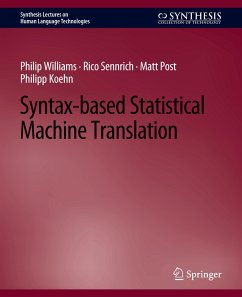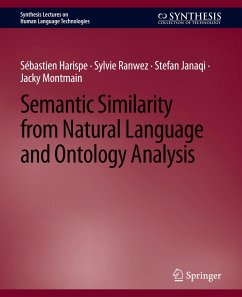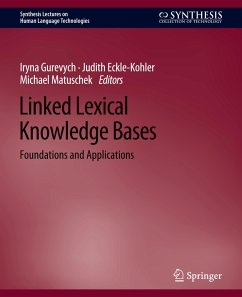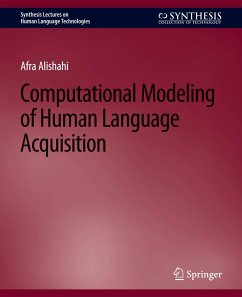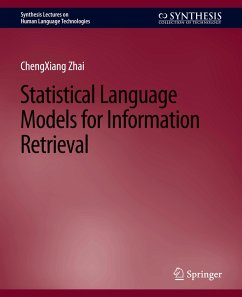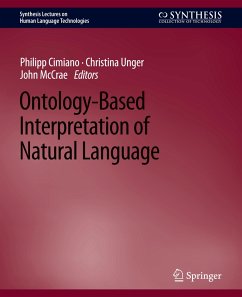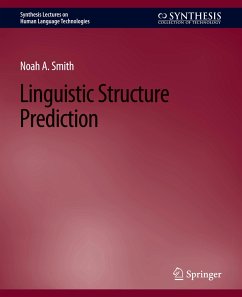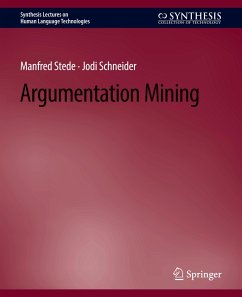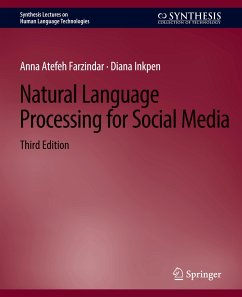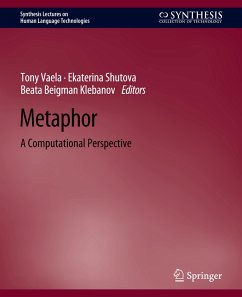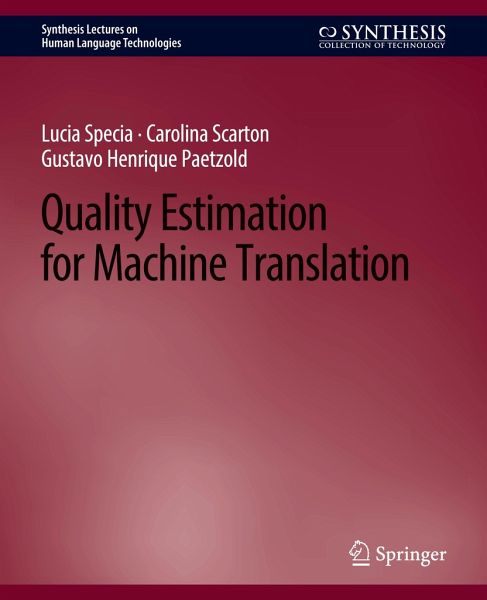
Quality Estimation for Machine Translation

PAYBACK Punkte
0 °P sammeln!
Many applications within natural language processing involve performing text-to-text transformations, i.e., given a text in natural language as input, systems are required to produce a version of this text (e.g., a translation), also in natural language, as output. Automatically evaluating the output of such systems is an important component in developing text-to-text applications. Two approaches have been proposed for this problem: (i) to compare the system outputs against one or more reference outputs using string matching-based evaluation metrics and (ii) to build models based on human feed...
Many applications within natural language processing involve performing text-to-text transformations, i.e., given a text in natural language as input, systems are required to produce a version of this text (e.g., a translation), also in natural language, as output. Automatically evaluating the output of such systems is an important component in developing text-to-text applications. Two approaches have been proposed for this problem: (i) to compare the system outputs against one or more reference outputs using string matching-based evaluation metrics and (ii) to build models based on human feedback to predict the quality of system outputs without reference texts. Despite their popularity, reference-based evaluation metrics are faced with the challenge that multiple good (and bad) quality outputs can be produced by text-to-text approaches for the same input. This variation is very hard to capture, even with multiple reference texts. In addition, reference-based metrics cannot be used inproduction (e.g., online machine translation systems), when systems are expected to produce outputs for any unseen input. In this book, we focus on the second set of metrics, so-called Quality Estimation (QE) metrics, where the goal is to provide an estimate on how good or reliable the texts produced by an application are without access to gold-standard outputs. QE enables different types of evaluation that can target different types of users and applications. Machine learning techniques are used to build QE models with various types of quality labels and explicit features or learnt representations, which can then predict the quality of unseen system outputs. This book describes the topic of QE for text-to-text applications, covering quality labels, features, algorithms, evaluation, uses, and state-of-the-art approaches. It focuses on machine translation as application, since this represents most of the QE work done to date. It also briefly describes QE for several other applications,including text simplification, text summarization, grammatical error correction, and natural language generation.



